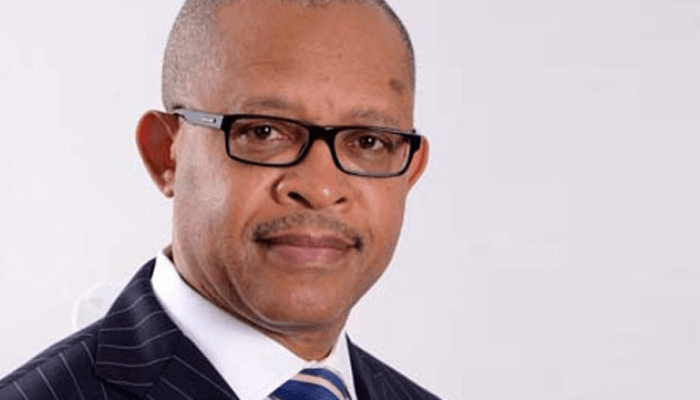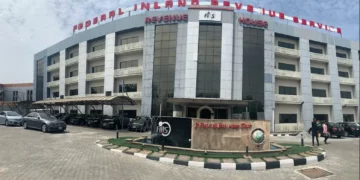How do you see government policy on gas commercialisation?
In Nigeria today and most parts of the world, what is predominant in the energy field is gas. Of course oil remains important and will continue to generate its own values. I can assure you that as of today the bulk of foreign exchange and revenues that drive the Nigerian economy comes from oil and gas.
However, as far as the energy we deal with today there is a lot of existing projects we are executing and more that will come after that will be on gas.
Gas is peculiar such that for you to produce, distribute and utilize gas you have to deliberately engineer and build the right infrastructure. You cannot store away gas the way we do oil. You have to build infrastructure that would match production with transportation and utilization. That is why you have pipelines; that is why you have LNG and CNG technologies for virtual transportation of gas. These take gas to utilization.
Are there any bottleneck affecting the initiative?
The biggest bottleneck in the utilisation of gas energy in Nigeria today are the pipelines to distribute and of course the LNG for international sales and delivery.
So, Oilserv is always ready and well prepared to be able to make the difference in the delivery of the emerging pipeline projects in the continent.
The Trans-Saharan Gas Pipeline is actually one of the two major international pipelines that are being envisaged. The pipeline is the one that will take off from Kano and go through Niger Republic and Algeria and end up in Europe.
The project that is actually hot now and is on board in terms of process is the Nigeria-Morocco Pipeline which will run offshore West Africa to North Africa. It will go all the way from Niger Delta to offshore Lagos. It will then go through all the countries on the coast of West Africa until it gets to Mauritania. And then it goes on land through Morocco where it crosses the channel until it gets to Spain.
So these are the key pipelines that are upcoming, and we are very aware of the opportunities and we expect to be part of these.
We know that it is a project that might require more than one contractor to execute, but we want to be part of it because we have the capacity to deliver our scopes.
What do you say about pipeline vandalism?
At home the prevailing headache is pipeline vandalism; and many solutions have been proffered including the horizontal directional drilling technology in replacing the existing pipelines. Of course there are other security arrangement and contracts.
How best do you think the problem could be solved?
Pipeline vandalism is not peculiar to Nigeria. It has been existing in Nigeria for decades, but it has been exacerbated in the past few years. It became prominent and impactful on the operations of the oil and gas industry starting from the 2000s. But today it has been in the news of course, but there are quite a few ways to tackle this problem. What is important is that every problem in the industry actually has solution.
What do we do? It is just to sit around it and strategise on the right solutions that are cost effective and deliver the goals. Nigeria needs to be able to secure industry production whether it is oil or gas.
Gas is not easily stolen because you cannot safely keep the stolen pipeline gas. The problem however is that most of the gas produced in Nigeria is associated with oil production. So whenever oil production goes down, it affects production of gas too. So pipeline vandalism simultaneously affects oil and gas production.
How can this be resolved?
There are quite some existing methodologies to solve the Nigerian pipeline problems. In some areas it makes sense to use the horizontal directional drilling which (HDD) you mentioned; in some other areas we have the methodologies where we can reinforce the pipelines and make those pipelines in invulnerable to sabotage. Oilserv has that technology. That technology is already tested in the United States and it is working there.
Most importantly, beyond technology, it is for us to develop a system that recognizes the problems we have in this country, find out the root cause of it, and deal with the root cause besides dealing with the symptoms. That will require the concerted efforts of everybody: government, NNPC Limited, IOCs, and in fact all the producers. It also involves all the communities. It involves governments at all levels: local governments, state governments and federal government.
I can tell you clearly that local governments are very impactful because they deal with people at the level you can see who is doing what.
So yes, in protecting the pipelines there are instances where you can use the HDD to mitigate vandalism and solve that. There are also instances where you may not be able to use the HDD, and you can actually apply technology to reinforce the pipelines with special coatings that would make it impossible for anybody to find them accessible.
What you have to know is that in all this, it will require serious investments because it is going to cost you more to utilize these methodologies rather than use standard construction methods. But at the end of all these, what is important is that it is going to save you more damages. It will actually save you more especially with the regards to the products. So that is the way it is.
How has the frequent production downtimes affected the activities of service companies in the industry?
I will be very blunt and tell you that vandalism and other events that force producers to shut-in production is impacting Nigeria as a country very seriously. It is impacting oil and gas companies extremely badly. Some of them have shut down operations. Imagine the cost you carry in the course of your operations; how are you going to sustain that business with that level of cost when you have shut-in your production?
So what about the other stakeholders like the service companiesthat are mostly impacted? Because when you shut your operations, you can no longer retain the services of these companies. And some of these service companies are Nigerian companies, so they produce multiplier effects. And that is why it is important to find a solution quickly because the multiplier effect on the economy is very bad.
Actually, a lot of the service companies are struggling since the past years because there is nothing to do. Imagine when you have the NCTL that has capacity to flow hundreds of thousands of barrels of crude oil per day shut down for a year. You have the Trans-Forcados shut down, and you have other export pipelines shut down. What that means is that companies that feed these pipelines are shut down. And if the operating companies shut down, then they won’t need the services companies.
So the perspectives for the service companies under the prevailing circumstances are extremely negative. As I have said, quite a lot of service companies are virtually doing nothing. What it means is that revenue is not there. What it also means is that some of the service companies are in the situation of shutting down their businesses.
Of course, laying off staff has been going on for quite a while but the numbers will be visible when companies do their numbers but as at today I can tell you it is hurting. It is hurting the service companies and it is hurting the producing companies. The producing companies are hurting because most of them have no production.
Government’s gas monetisation programmes have suffered delays how can the market assist with supply?
Basically, from the project development point of view there is no project in this world that is conceived for development with proper strategies that by the end of the day would not have one issue or the other. In the case of Nigeria, we have our own peculiar situation, other countries have theirs.
I mentioned it earlier that gas development requires infrastructure. Without the right infrastructure, you cannot utilize gas. And when you talk about infrastructure, you talk finance. And there are many projects scattered across the world. So, projects around the world are struggling for the same finance, and the finance we are talking about is not five million dollars or ten million dollars. Sometimes, these finance issues run into billions of dollars. And we do not have the capacity to fund these projects entirely within the country. In most cases the funding syndication involves international and Nigerian banks.
And for real big ticket projects, Nigerian banks take a smaller chunk. With that, it takes time to actually put together a financing plan and execute it. It is a process because part of it is looking at the risks involved, and being able to mitigate them as far as banks are concerned. And I can tell you, in finance banks do not look at risks the way we in technical services look at them. Finance people look at risk as total. So you have to mitigate all before they can check the boxes. So that leads to delays.
In actual execution, you also have issues that impact speed: logistics issue, sometimes security and management issues. But I can tell you that in all the initiatives, the NNPC Limited is driving the government’s gas development initiatives very strongly.
A lot of pipelines are being built today for transmission and distribution of gas is being driven by NNPC Limited, and they have achieved quite a lot within the confines of the amount of funds they can muster. And with what we have today and what is being done today, some of the future projects will learn from the experiences of the past to make sure that we go around financing in a more effective manner, working closely with NNPC Limited and other agencies that are required to develop these assets and infrastructure.
So, the point I am making is: yes, there could be delays.
Given the security situation in the country, how are you working to protect your investments?
On the issue of security, I said earlier that every country has its own security issues. I am also aware that elections are coming, and things are going to heat up. But these are real threats that happen at every election. I am sure you know what happened in the last election in America between Joe Biden and Donald Trump; but America did not crumble or come to an end. So it is not unusual; that is the resilience of democracy.
And of course, we have a number of security issues. There is no doubt about that. But I can tell you that we have been through it over several years and we have been able to adapt and mitigate such possible risks. And I can tell you also that we also strategize and stay ahead of issues. We do not wait to get to the bridge before we cross it. When we know we have to cross a bridge we plan how to cross the bridge before we get there.
So these issues are going to be there. And I also tell you that the essence of managing a system is the ability to deal with difficulties; to overcome the difficulties and be able to get your results. That is what separates a system that is successful and the one that is not.
So, what you pointed out is a risk and it is part of the risks that is going to be dealt with. There might be some foreigners that see the risks and be skeptical at this time for some reason or the other, but there are other ones that look beyond the risks to see opportunities. So, we just have to work with those who are willing to work with us.
So, what is key for us as a company is that almost every set of our operations is entirely run with local capacity. That make it easier for us to overcome some of these negatives.
But for Nigeria as a country, we see high capital flights. The CBN announced about a week ago that there is more reduction in international investments, and investments coming from outside the country.
With all thatit is the duty of government to work hard to effect changes to be able to impact strongly and market the country adequately, and we all also have to market our country in positive light to enable investments in the economy.











